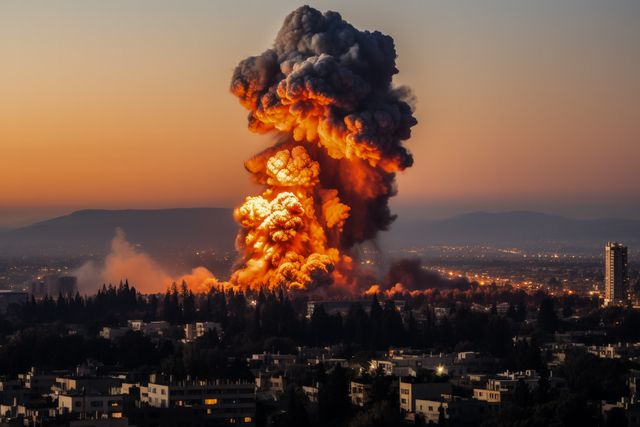A coordinated effort by Israel and its allies to thwart an extensive missile and drone attack from Iran tallies up to a hefty financial sum.
The recent missile and drone attack launched by Iran against Israel involved a complex and costly defence operation that exceeded $1 billion in expenses, as per expert estimates. This significant military engagement involved not only Israel but also the concerted efforts of American, British, French, and Jordanian forces.
Reem Aminoach, a former brigadier general and the chief financial adviser to the head of the Israeli military, provided these figures to Bloomberg. Aminoach, who has substantial experience in defence budgeting and was a board member at Israel Aerospace Industries Ltd., based his calculations on the number of interceptor missiles fired by Israel during the attack.
Israel bore the brunt of the defence, handling two-thirds of the interceptions. The operation showcased the high costs associated with modern air defence systems, especially as countries like Iran advance their missile and drone capabilities.
Embed from Getty ImagesThe coordinated defence was a response to an unprecedented barrage of approximately 170 drones, 30 cruise missiles, and 120 ballistic missiles launched by Iran. The Israeli military reported that only a small number of these ballistic missiles managed to penetrate Israeli airspace.
The operation required a sophisticated integration of radar sites, missile-interceptor launchers, warships, and air bases across the Middle East. The U.S. contributed significantly, destroying over 80 drones and at least six ballistic missiles that were launched from Iran and Yemen. Yemen’s Houthi rebels, who receive backing from Tehran, were implicated in the attack.
James Stavridis, a retired U.S. Navy admiral, commented on the cost efficiency of such defensive measures, noting that the U.S. sometimes fires two to three missiles, priced at $2 million each, at incoming threats to ensure they are neutralized. Meanwhile, Israel’s most expensive interceptors, the Arrow 3, come with a price tag of around $3 million each.
This incident highlights the escalating costs and strategic demands of maintaining robust air defence systems in an era where drone and missile technology is rapidly advancing and becoming more accessible to various nations and non-state actors.
